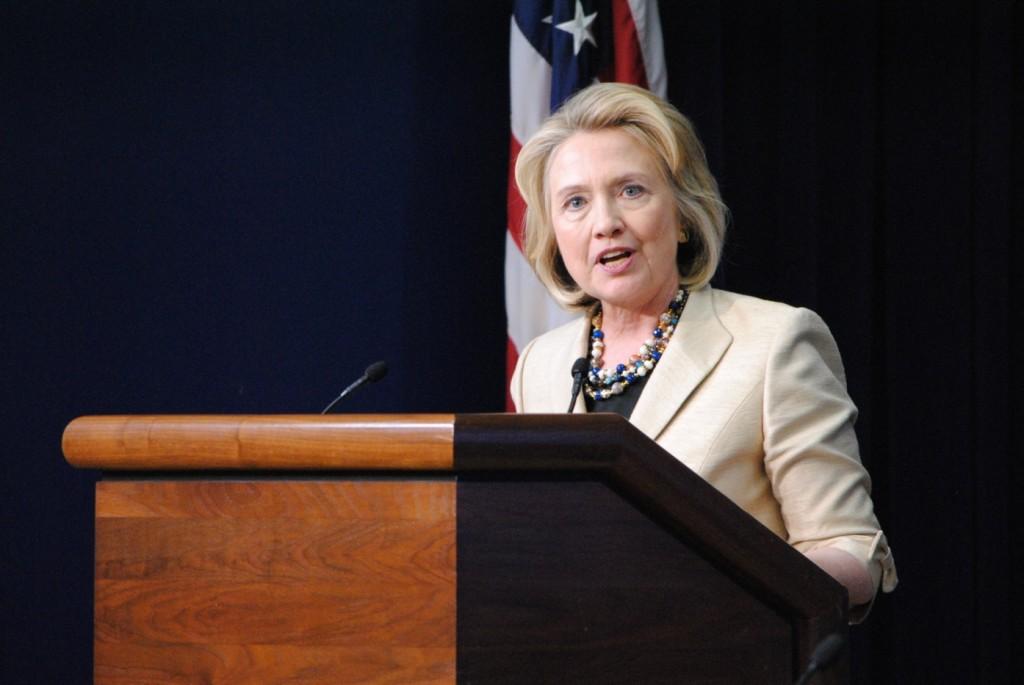WASHINGTON – Former secretary of state Hillary Clinton announced her support of action in Syria at an unrelated event Monday introducing a new wildlife trafficking advisory council.
“The Assad regime’s inhuman use of weapons of mass destruction against innocent men, women and children violates a universal norm at the heart of our global order,” Clinton said. “Therefore it demands a strong response from the international community led by the United States.”
Conflict in Syria, she said, is a threat to stability in neighboring regions – needing a “credible military threat by the United States to keep pressure on the Syrian government.”
Conflict in Syria wasn’t the only hazard Clinton spoke of – with a growing demand for bush meat, ivory and other exotic animal byproducts, wildlife trafficking has become a multi-billion dollar criminal industry.
“Illegal poaching and trafficking also represent an economic and security challenge in Africa and beyond,” Clinton said. “Wildlife trafficking has become more organized, more lucrative and more dangerous than ever before. Poachers now use helicopters, automatic weapons, night vision goggles, satellite phones to overwhelm and even murder park rangers and other local authorities.”
Dan Ashe, director of the U.S. Fish and Wildlife Service, said Clinton’s personal interest in stopping wildlife trade has helped fuel government and private organization awareness of the issue.
She said is it important to stop wildlife trafficking not only for the animals’ lives but also for human life – wildlife rangers and community members are increasingly in the pathway of poachers.
Ashe said in an interview that the rhinoceros and elephant are two species most affected by illegal wildlife trade.
“Rhino is now worth twice its weight in gold,” he said. “It’s being driven by an emerging middle and upper class in Asia.”
He said ivory brings in more than $1,000 a pound in some areas.
“Our estimates are that wildlife trafficking as an illicit business has increased more than two-fold since 2007,” he said. “Species like tigers – there are only 3,200 left in the wild globally.”
The advisory council’s creation comes after President Barack Obama – while visiting Tanzania – issued an executive order in July to combat wildlife trafficking.
Secretary of the Interior Sally Jewell announced the members of the advisory council, and five of the council members answered questions about the importance of technology and communication in stopping the illegal trade industry.
They said the government plans to destroy 6 tons of illegal ivory it has seized.
Jewell said the government estimates that the wildlife trafficking is now the fourth-largest transnational crime in the world.
Jessica Wray, a senior journalism major, is currently participating in the Scripps Howard Foundation’s Semester in Washington Program. This story was previously published on the SHF Wire Service.





